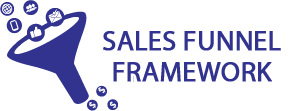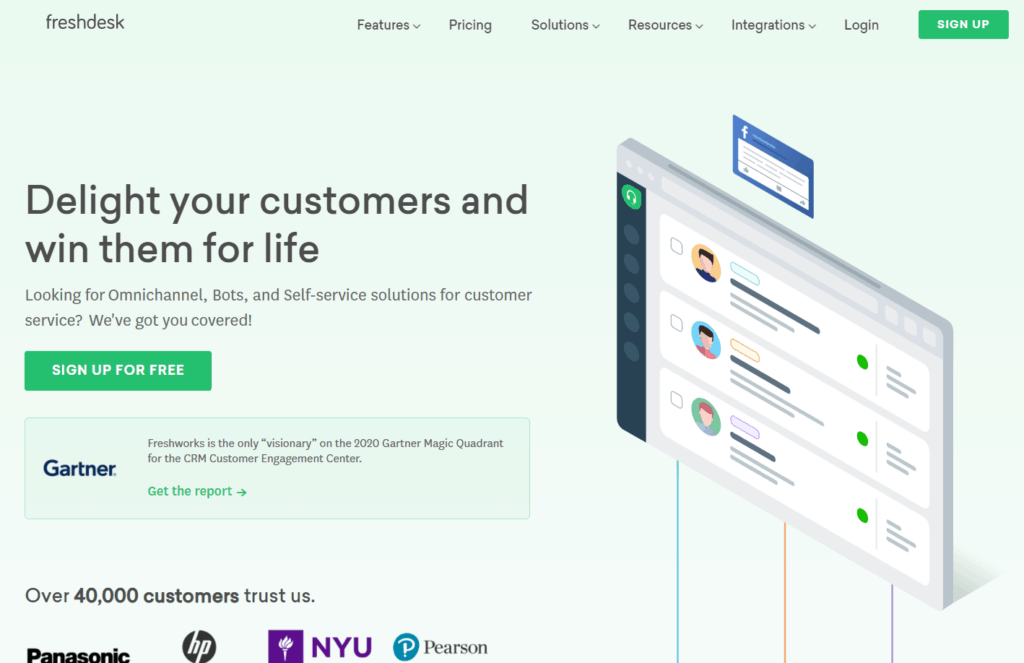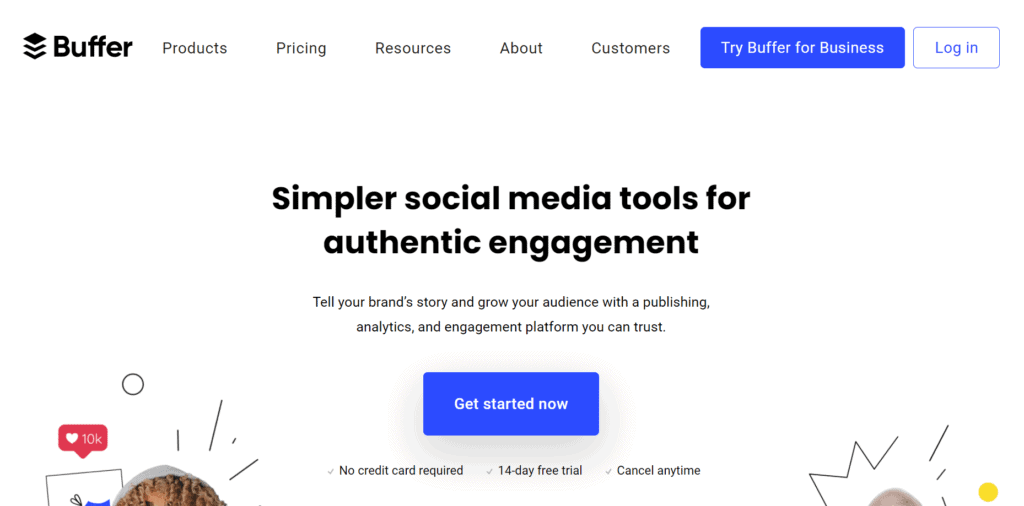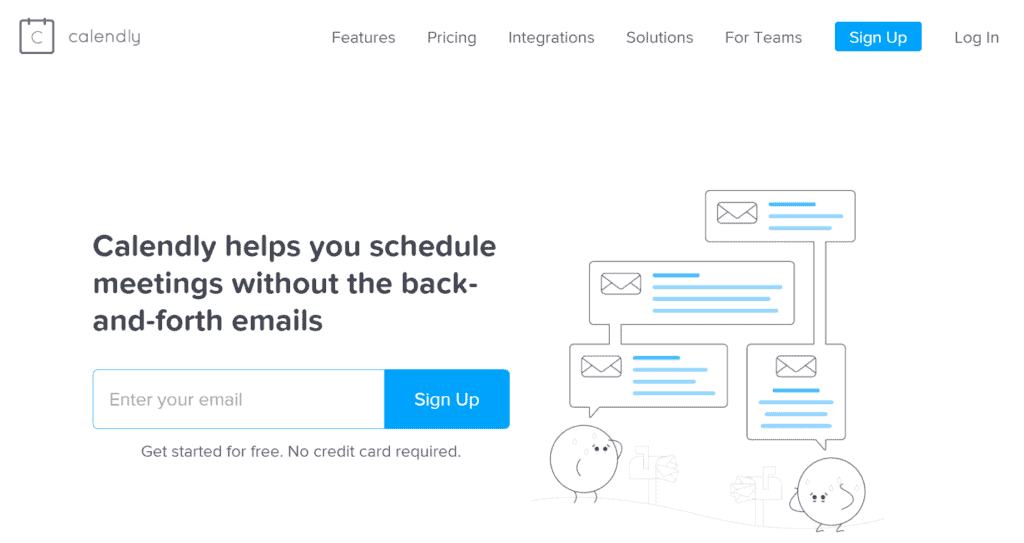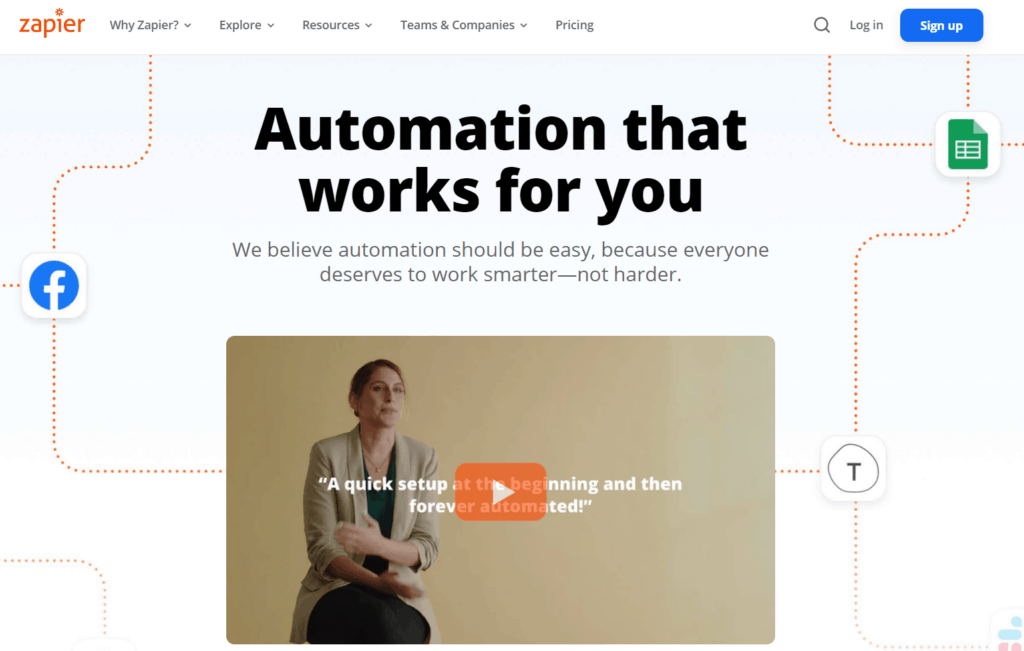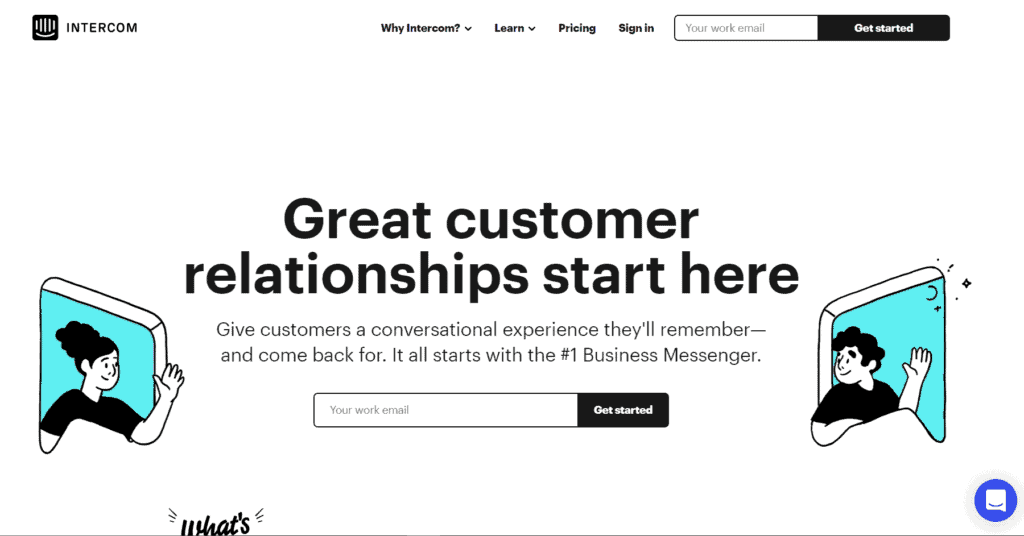There are never enough hours in the day. We get so bogged down in the minutiae of keeping the gears running that it doesn’t leave much time for big picture planning or strategy sessions.
With some clever automations, you can slash the time you need to complete simple tasks. Let the bots do the grunt work so you can focus on what’s important!
These 6+ tools were selected based on their functionality and ease of use. Each has a non-coder-friendly UX, so the average small business manager will have no trouble setting up their automations.
Let’s dive in.
Email Automations
While most small businesses who engage in email marketing have some kind of instant welcome message, there are many other email functions that can function on autopilot.
With any email provider like Constant Contact or ConvertKit, you can create automations to not just onboard your subscribers, but to make sales and keep your list clean.
Perhaps you’re a course creator that has both beginner and advanced courses. You could create an automation to begin a sales funnel for the advanced courses 6 months after a customer bought your beginner course. Put those sales on autopilot and increase the customer lifetime value.
You can also set up a re-engagement campaign to get subscribers who have stopped opening your emails to start clicking again. And if the re-engagement fails, you can set up an automation to scrub subscribers from the list after a certain number of months. Don’t keep paying to send emails to people who will never buy.
There are many more email automations you could create. Abandoned carts, review requests, product follow-ups — all of these can help you to learn more about your customers and increase sales.
Freshdesk
Freshdesk helps you to automate customer support by prioritizing and assigning support tickets to the right team for you. It can pull messages from your website and social media (where inquiries often get missed) to ensure that no query goes unanswered.
Freshdesk can can assign tickets based on workload to prevent overwhelm on your team. Or it can assign tickets to certain agents based on skill or department. The platform also reminds team members when their input is needed, and lets you set up simple or complex workflows to suit your needs.
Automations aren’t available on the Freshdesk free plan. You’ll need the Blossom plan or higher, starting at $15/month. For all the customers who are going to be wowed by your improved response time, that’s $15 well spent.
Buffer or Hootsuite
While social media is the great marketing equalizer, letting small businesses develop a massive following for free…it is incredibly time-consuming.
And if you’re trying to create regular content like feed posts, stories, and videos, it’s hard to keep up with a consistent posting schedule.
With a social media marketing automation like Buffer or Hootsuite, you can batch your content creation and posting schedule. Create every piece of content and caption for the entire month at once, and let the automations do the actually posting for you.
This is not only easier on the social media manager, but it also encourages intentional choices about what to post when. By looking at the overall marketing schedule for the month, you can decide when to tease a sale or promote a new launch.
Trying to decide between the two? Buffer is easier to use and has a simpler interface. It also helps you to measure your social media performance through its Analyze feature, although that comes with an extra cost.
Hootsuite is a bit less intuitive than Buffer, but it lets you view multiple social media feeds in one dashboard. It can also access your content from cloud services like Google Drive or Dropbox, so you can find your photos without having to upload them natively to the platform. Buffer lacks this option.
Whether you choose Buffer, Hootsuite, or one of the other social media automation tools like Later or Tailwind, a scheduling app will help you take control of your feeds in less time.
Calendly
Emailing back and forth to find a good meeting time is so 2012. If you’re not using Calendly to manage your calendar and meeting schedule, it’s time to hop on the bandwagon.
Calendly integrates with major calendar software and apps like Google Calendar, Outlook, and iCloud. And if you use a non-compatible calendar, Calendly will walk you through how to create a custom connection with Zapier (see below).
Once your calendar is synced to Calendly, you’ll get a custom link where customers and colleagues can view your availability and pick a time slot for a meeting. Don’t like to take meetings on Monday? You can block them off. Going on vacation? Set up special hours to remove those dates from the options.
Calendly also integrates with tons of other programs like HubSpot and Salesforce, making it a huge timesaver for salespeople who do frequent discovery or sales calls
You can get started for free with one calendar for a single user. If you have multiple calendars to sync up, you’ll need a paid plan. The paid plans also have extra functions like SMS meeting reminders and workflows, so you can send automated followup emails after meetings. That’s multiple automations for the price of one.
Zapier
Zapier is an automation powerhouse. Got two separate apps that don’t play nicely together? Chances are Zapier can talk to both and act as the middleman.
This impressive bit of software can talk to over 2,000 different apps, and create “if this, then that” workflows called Zaps. You decide on your trigger event and the action(s) to follow, and Zapier takes care of the rest.
A Zap can automatically add email addresses gathered in GoToWebinar to your email list. Integrate Slack with your blog’s RSS feed and send an automatic message to your marketing channel when a new post goes live. Sync your Twitter feed with Google Sheets to gather users who share your content. Create a master list of your most engaged followers.
Once you set up your Zap, the automation will continue to run behind the scenes. Zapier can create actions in the G Suite, Slack, Trello, Mailchimp, Asana, Airtable, Salesforce, Hubspot, and many, many more.
You can get started with Zapier for free. Create up to 5 single-step Zaps to complete 100 tasks per month on this basic plan. When you’re ready to upgrade, paid plans start at $19.99/month.
Intercom
Intercom is an automation tool for small businesses that have to answer frequent questions. This conversational chatbot can provide basic answers on its own, or forward customers to articles and FAQs that can answer their questions.
It also lets you set up your own workflows to get customers to the right support staff quickly. You can create rules within the chat to send customers with a higher lifetime value to VIP support, or send chats that contain references to bills or payments directly to your billing department. Plus, the chat gathers data that you can use to segment and personalize your messages in the chat.
These are just a few of Intercom’s functions. There are more!
Intercom can integrate with Calendly, so customers can set up meetings with sales reps right from the chat. Plus it works with Stripe, Slack, Jira, Salesforce, and more. And if there’s an app that Intercom doesn’t talk to, there’s always Zapier.
More Time, More Money
Learning how to use these tools will take an upfront time investment, but the long-term increase in efficiency will more than make up for it. And beyond the speed, there are also sales gains to be had here, too.
Look at your current workflows to see where a simple automation could improve your process. Once you get the hang of it, you’ll be looking for automations everywhere.
